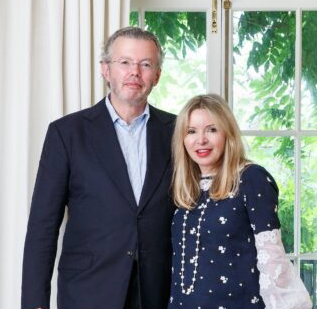A survey of charity campaigners has found that more than seven in ten believe politicians “have become more hostile to campaigning” over the last year and six in ten say their engagement with ministers is “now less effective”.
As a result, campaigners are “increasingly pursing alternative tactics” by focusing their lobbying efforts on the wider public, politicians outside of Whitehall, business leaders and unions”.
The findings have emerged in the latest annual survey of charity campaigners by social action campaign group Sheila McKechnie Foundation.
This also found that charities are sometimes censoring themselves for fear of a backlash from the public, politicians, and funders.
Almost half (47%) of charities say fear a public backlash is forcing them to remain silent on issues. A similar proportion (43%) say they censor themselves due to concern of a political backlash.
Meanwhile, just over a third (34%) say they censor themselves out of fear they will lose funding.
“We have publicly backtracked on public statements due to fear of backlash from partners due to working relationships and funding,” said one charity representative.
Another said; “We can't always openly declare the truth of a situation due to funding constraints and for fear of damaging public and political relationships.”
While 38% said they talk publicly about sider social and economic issues related to the causes they support, 30% said their lobbying on these matters was “not enough”.
“There’s limited time and resource to agree on the wording, staff not emboldened to speak to this,” said one charity representative.”
Meanwhile, another said fear of commenting on an issue outside their remit or “appearing political” is another concern.
“Not wishing to comment on matters that could be seen as 'political', we are a charity that focuses on health, yet we don't talk about wider determinants of health (eg. poverty) often as we fear it will put off supporters and make the government less likely to listen,” they said.
The Foundation's report has been released as CIVICUS Monitor downgraded the UK’s civic space rating from “narrowed” to “obstructed” following government measures to restrict protests and migrant rights.
Despite concerns raised around the effectiveness of lobbying, charity leaders welcomed measures in the Chancellor Jeremy Hunt’s spring budget to support charities with an extra £100m in funding. Campaigning efforts by the sector were particularly praised by charity leaders in securing this funding.
“I think our sector can be very proud that it has been heard, been acknowledged and continues to have impact politically in ways that perhaps we have not seen for several years,” said ACEVO chief executive Jane Ide.
Latest News
-
Youth homelessness charity forced to turn away young people due to demand surge
-
Funder offers charities ‘social change’ grants of up to £50,000 to boost training
-
Navy charity handed £368,500 to support submariners’ families
-
Former football charity chief to lead sports and culture charity
-
From comics to crockery: the best places for charity shop sales revealed
-
Three arrests made amid ‘large-scale theft' of charity clothes donations
Charity Times video Q&A: In conversation with Hilda Hayo, CEO of Dementia UK
Charity Times editor, Lauren Weymouth, is joined by Dementia UK CEO, Hilda Hayo to discuss why the charity receives such high workplace satisfaction results, what a positive working culture looks like and the importance of lived experience among staff. The pair talk about challenges facing the charity, the impact felt by the pandemic and how it's striving to overcome obstacles and continue to be a highly impactful organisation for anybody affected by dementia.
Charity Times Awards 2023
Mitigating risk and reducing claims

The cost-of-living crisis is impacting charities in a number of ways, including the risks they take. Endsleigh Insurance’s* senior risk management consultant Scott Crichton joins Charity Times to discuss the ramifications of prioritising certain types of risk over others, the financial implications risk can have if not managed properly, and tips for charities to help manage those risks.
* Coming soon… Howden, the new name for Endsleigh.
* Coming soon… Howden, the new name for Endsleigh.
Better Society

© 2021 Perspective Publishing Privacy & Cookies











Recent Stories